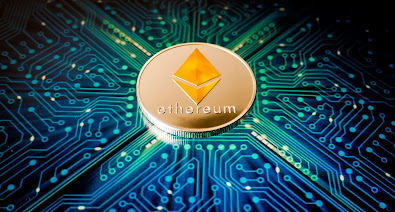Ethereum and it's Network

Ethereum is a decentralized, open-source blockchain platform that enables the creation of smart contracts and decentralized applications (dapps). It's native cryptocurrency is Ether (ETH). The Ethereum network allows developers to build decentralized applications that can perform various functions, such as creating digital assets, storing and tracking data, and enabling decentralized finance (DeFi) transactions.
The Ethereum network uses a consensus algorithm called proof-of-work (PoW), which allows for the creation of new blocks and the confirmation of transactions through a process called mining. However, Ethereum is planning to move to a new consensus algorithm called proof-of-stake (PoS) in the near future, which is expected to improve scalability and reduce the environmental impact of the network.
Ethereum is often referred to as the "world computer" because it allows for the creation of decentralized applications that can run on a global network of nodes. These applications can be built using the Ethereum Virtual Machine (EVM), which is a sandboxed environment that allows for the execution of smart contracts. Smart contracts are self-executing contracts with the terms of the agreement written directly into code. They can be used to automate various processes and can be programmed to execute actions when certain conditions are met.
One of the key features of Ethereum is its support for decentralized finance (DeFi) applications. DeFi is a growing ecosystem of financial applications built on blockchain technology that aims to provide more accessible and transparent financial services to users. These applications can include decentralized exchanges (DEXs), lending platforms, and stablecoins.
Ethereum's move to a proof-of-stake consensus algorithm is expected to improve the scalability and sustainability of the network. In PoS, instead of miners competing to solve complex mathematical problems to validate transactions, validators are chosen to create new blocks proportional to the number of coins they hold and "stake" as collateral. This will lead to less energy consumption and faster confirmation of transactions. This change is planned to be done with a series of upgrades called Ethereum 2.0 or Serenity.
Overall, Ethereum has a large and active developer community, and its platform is constantly evolving with new features and upgrades. It is considered as one of the most versatile blockchain platforms and has significant potential to enable new decentralized use cases in various industries.


0 Comments